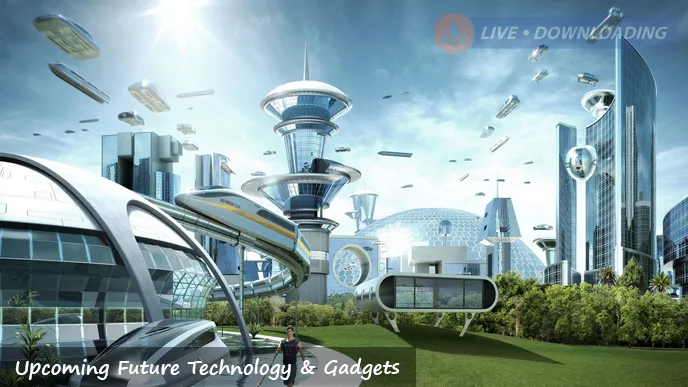Follow the steps to activate Disney Plus on your Smart TV
- Jan 31, 2024
- 474

Technology is advancing at a rapid pace, and new gadgets are being developed every day that could change the world as we know it. From advanced medical devices to cutting-edge artificial intelligence, the future looks promising for innovation and advancement. In this article, we will explore some of the upcoming future technology and gadgets that have the potential to change the world.
Artificial intelligence (AI) and machine learning are already revolutionizing many industries, from healthcare to finance to transportation. The technology allows machines to learn from data, make predictions, and automate processes. In the future, AI and machine learning could be used to predict and prevent diseases, improve transportation systems, and enhance the security of our homes and businesses.
Quantum computing is a type of computing that uses quantum mechanics to perform complex calculations much faster than traditional computers. These devices use qubits instead of binary digits, which allows them to solve problems that are impossible for classical computers. Quantum computing has the potential to revolutionize many industries, including finance, drug discovery, and cybersecurity.
Augmented reality (AR) and virtual reality (VR) have been around for some time, but they are now becoming more advanced and accessible to consumers. AR and VR could be used in many industries, from gaming to education to healthcare. For example, medical students could use AR to simulate surgeries, while VR could be used to provide virtual therapy for mental health patients.
5G technology is the next generation of mobile networks, which promises faster speeds, lower latency, and more reliable connections. This technology has the potential to revolutionize many industries, from autonomous vehicles to healthcare to entertainment. With 5G, we could see the widespread adoption of connected devices, such as smart homes and smart cities.
Nanotechnology involves manipulating materials at the atomic and molecular level. This technology has the potential to revolutionize many industries, including medicine, electronics, and energy. For example, nanotechnology could be used to develop more efficient solar panels, improve drug delivery systems, and create stronger and lighter materials for construction and transportation.
Biotechnology involves using living organisms or their products to develop new technologies and products. This field has the potential to revolutionize healthcare, agriculture, and environmental conservation. For example, biotechnology could be used to develop new treatments for diseases, create more sustainable food sources, and develop biofuels to replace fossil fuels.
The future is full of exciting possibilities, with technology advancing at an unprecedented rate. From AI and machine learning to 5G technology and nanotechnology, the upcoming future technology and gadgets have the potential to change the world as we know it. It will be interesting to see how these technologies are adopted and integrated into our lives in the years to come.
Frequently Asked Questions
Some upcoming future technologies include quantum computing, 5G networks, autonomous vehicles, augmented reality, blockchain, and artificial intelligence.
Quantum computing is a type of computing that uses quantum-mechanical phenomena, such as superposition and entanglement, to perform calculations. It has the potential to solve complex problems that classical computers cannot, which could revolutionize fields such as medicine, finance, and cryptography.
5G networks are the next generation of mobile networks, which promise faster speeds, lower latency, and more connected devices. This could enable a wide range of new applications, such as smart cities, autonomous vehicles, and remote surgery.
Autonomous vehicles are vehicles that can drive themselves without human input. They have the potential to reduce accidents, improve traffic flow, and increase mobility for people who cannot drive, such as the elderly and disabled.
Augmented reality is a technology that overlays digital information onto the real world. It has the potential to revolutionize fields such as education, entertainment, and advertising by providing immersive and interactive experiences.
Blockchain is a decentralized ledger technology that enables secure and transparent transactions. It has the potential to disrupt industries such as finance, healthcare, and supply chain management by providing a more secure and efficient way to store and share data.
You may also like Tech
Follow the steps to activate Disney Plus on your Smart TV
Top 10 Tech Gifts That Anyone Will Love It
What is a Paid Guest Post? | Sponsored Post
Cool Tech Gadgets On Amazon Now
How to recover email without phone number?
PayPal Errors: Causes and Troubleshooting